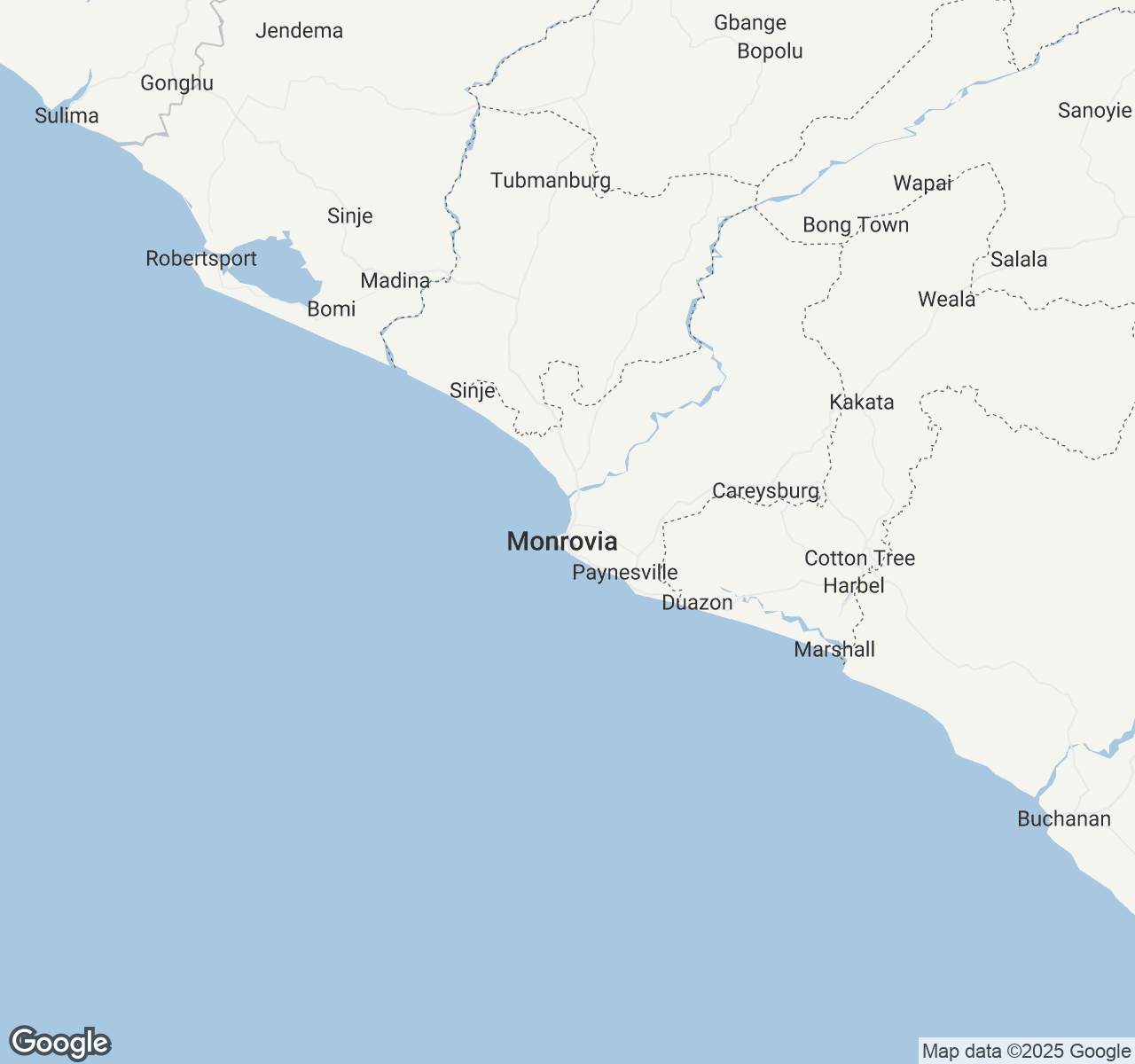
Things to Do in Monrovia
Discover the best of Monrovia
Plan Your Trip
Essential guides for timing and budgeting
Top Things to Do in Monrovia
Discover the best activities and experiences. Book now with our trusted partners and enjoy hassle-free adventures.
Your Guide to Monrovia
About Monrovia
Monrovia's red earth is stained with iron ore—a visible reminder of the commerce that built and sustained this coastal capital. Colonial buildings stand alongside crowded markets where vendors hawk their goods in Liberian English. The Atlantic provides the backdrop. Palm butter and cassava leaf stew simmer at street-side kitchens. You'll smell them before you see them. American influence runs through everything here, mixed with indigenous Liberian traditions in ways you won't find anywhere else in West Africa. Waterside Market is pure chaos. Vendors shout over each other, fabrics pile high in every color, and fresh produce crowds the stalls. The sensory overload is the point. The city has faced serious challenges. But Monrovians don't dwell on them. Locals greet visitors with real curiosity and warmth that feels genuine, not performed for tourists. Providence Island marks where freed American slaves first landed. Now a modern skyline climbs along Broad Street. This is a city building its future—one that doesn't ignore its complicated past.
Travel Tips
Transportation: Use only reputable taxi companies or ride-hailing apps like Kekeh. Avoid shared taxis after dark and negotiate fares beforehand. Private drivers cost $40-60/day and provide safer, more reliable transportation than public buses.
Money: Carry US dollars (widely accepted) and Liberian dollars. ATMs are scarce outside downtown; withdraw cash at Ecobank or UBA branches. Keep small denominations handy as vendors rarely have change for large bills.
Cultural Respect: Dress modestly, especially when visiting mosques or traditional communities. Always ask permission before photographing people. Greet elders first in group settings and use your right hand for handshakes and receiving items.
Food Safety: Stick to bottled water and avoid ice. Choose busy local restaurants where food turnover is high. Try cassava leaf, jollof rice, and palm butter soup from reputable establishments. Avoid street meat and raw vegetables.
When to Visit
Monrovia's tropical climate features distinct dry (November-April) and wet (May-October) seasons. The dry season offers the best travel conditions with temperatures averaging 75-85°F (24-29°C) and minimal rainfall under 2 inches monthly. December through February represents peak season with hotel rates 40-60% higher and perfect weather for exploring markets and beaches. March-April remains excellent with slightly warmer temperatures around 80-90°F (27-32°C) and moderate pricing. The wet season brings heavy rainfall (15-25 inches monthly June-September), high humidity, and temperatures of 70-80°F (21-27°C). However, accommodation costs drop 30-50% and the city takes on a lush, dramatic beauty. Major events include Independence Day celebrations (July 26th) with parades and cultural performances, and Thanksgiving (first Thursday in November) reflecting American heritage. Budget travelers should consider May or October for shoulder season pricing with manageable rainfall. Business travelers prefer January-March for optimal weather and accessibility. Adventure seekers might appreciate the wet season's authentic local experience, though transportation becomes challenging and some attractions may close due to flooding.

Monrovia location map